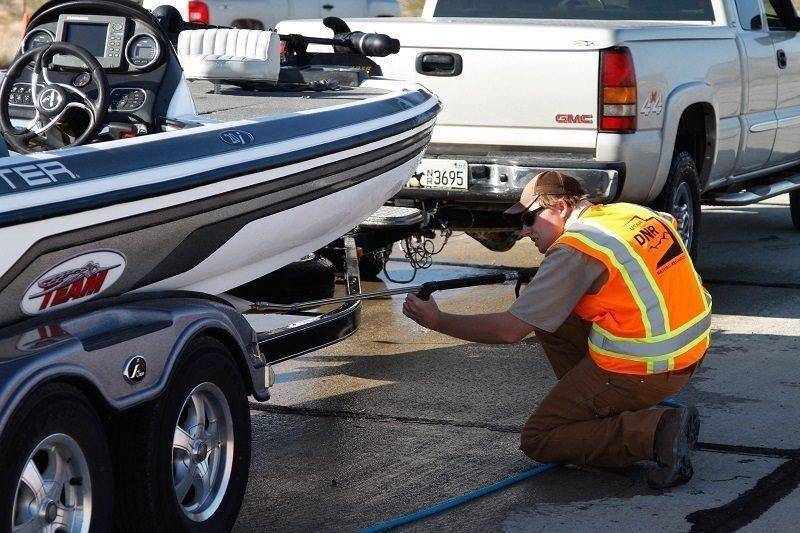DWR Press Release
Boaters must stop at mandatory inspection stations
As boaters eagerly anticipate Memorial Day weekend, Division of Wildlife Resources officers and biologists share two important reminders:
· Utah has three mandatory inspection stations. The stations have been established to protect Utah’s waters from quagga mussels. If you’re pulling or transporting watercraft, including boats, personal watercraft (such as Jet Skis and Wave Runners), canoes, kayaks or float tubes, you must stop at the stations. If you don’t, you’ll likely receive a citation. Then, the officer who cited you will direct you back to the station to get your watercraft inspected.
The stations will be in operation throughout the summer.
· Quagga mussels are spreading in Lake Powell. And juvenile quagga mussels were detected in Deer Creek Reservoir two years ago. If you boat on either water, you must remove the drain plugs from your boat and leave them out until you get home. Leaving the plugs out will help ensure that all of the water in the boat drains out as you’re traveling down the road.
(Quagga mussels have not been detected in Deer Creek since the initial discovery in a water sample collected in fall 2014. If quaggas aren’t detected this boating season, containment efforts at Deer Creek will be lifted. “Boaters at Deer Creek should continue to be vigilant,” cautions Nate Owens, aquatic invasive species (AIS) coordinator for the DWR. “All it takes is one negligent boater to infest Deer Creek and take us back to square one—or worse.”)
Locations
Mandatory inspection stations are located at the following areas:
· The Interstate 15 point of entry near St. George. All watercraft traveling north on I-15 must stop.
· The Daniels Canyon point of entry along U.S. Highway 40, just southeast of Heber City (near mile marker 22).
Only vehicles that are traveling up the canyon with watercraft—southwest, out of Heber City and Provo—need to stop. Vehicles with watercraft traveling the opposite way down the canyon—northwest toward Heber City—are not required to stop.
· In Garden City and Laketown near Bear Lake. All watercraft traveling to Bear Lake must stop.
In addition to the inspection stations, DWR officers and biologists also conduct administrative checkpoints along traffic routes that lead out of the Bullfrog and Wahweap marina areas at Lake Powell.
“The officers and biologists check boats for attached quagga and zebra mussels, and for standing water,” Owens says. “They also examine boats to ensure the drain plugs have been removed and have not been reinstalled. Citations are issued for violating any of these rules.”
Why the concern?
There are many reasons why Utahns don’t want quagga mussels, or their cousins, zebra mussels, in the state:
– Mussels can plug water lines, even lines that are large in diameter.
If mussels get into water pipes in Utah, it will cost millions of dollars to try to remove them. If you live in Utah, you’ll likely pay higher utility bill costs to try to get the mussels removed.
– Mussels remove plankton from the water, the same plankton that supports fish in Utah. The mussels could devastate fisheries in Utah.
– Mussels can get into your boat’s engine cooling system. Once they do, they’ll foul the system and damage the engine.
– When mussels die in large numbers, they stink. And their sharp shells can cut your feet as you walk along the beaches where the mussels died.

